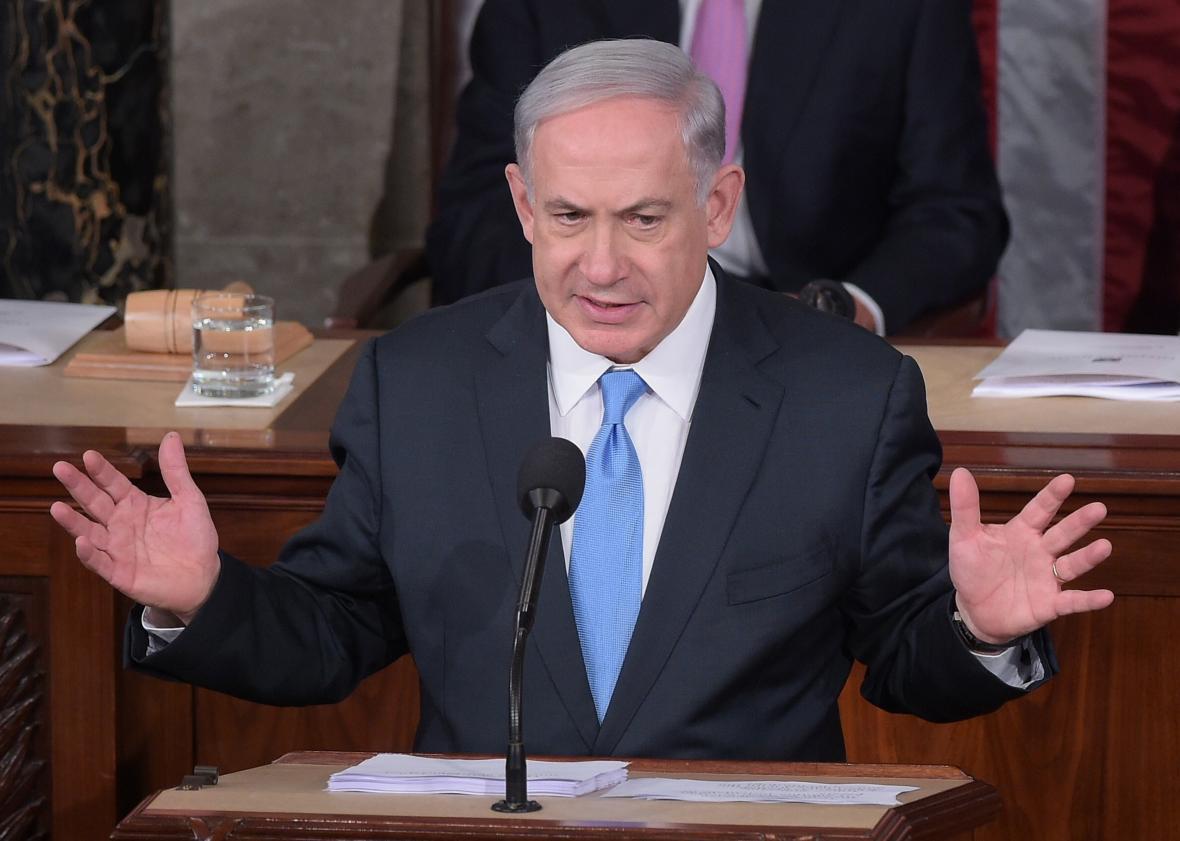The much-anticipated reaction of the Iranian “hardliners” to last week’s nuclear deal has been pretty muted so far. The New York Times reports today on a hastily thrown-together press conference of conservative analysts who’ve gone through the text of the agreement to find places where it supposedly crosses previously established “red lines.” And the previously highly critical hardliner newspaper Kayhan has offered some mild criticism. But with the supreme leader giving his tepid endorsement to the work of President Hassan Rouhani and his negotiators, not to mention strong public support for a deal to bring sanctions relief, it’s hard to imagine this grumbling having much effect.
One reason for the muted response? Iranian political analyst Saeed Leilaz suggests to the AP that “Iran’s hard-liners don’t want to be seen as [an] ally of [Israeli Prime Minister Benjamin] Netanyahu these days.” As one Tehran resident quoted by the AP puts it, “There are three groups of people in the world who are against the deal: War-mongering Republicans in the U.S., Netanyahu and hard-liners in Iran.”
Proponents of the deal were playing up Netanyahu’s opposition even before it was signed, with former President Ali Akbar Rafsanjani, an ally of Rouhani, saying that hardliners “speak Netanyahu’s language.” When the framework agreement was signed back in April, supporters in the streets of Tehran chanted “Kayhan, Israel, our condolences,” putting the conservative paper and Iran’s arch-enemy in the same category.
Even in the U.S., Netanyahu’s vociferous opposition may have helped smooth the deal’s path. The prime minister’s speech to Congress in April at the invitation of Republican leaders appalled many Democrats and likely led at least some to overcome their normal resistance to supporting something strongly opposed by the Israeli government. For instance, after signing on to a pledge last January not to support new sanctions on Iran while negotiators were still working out the framework agreement Sen. Joe Manchin, a conservative Democrat and frequent critic of the White House who had previously supported new sanctions, said that the invitation had shifted the dynamic and that “For the prime minister to accept made it extremely political.”
Republicans will probably need 13 Democrats from the Senate and 43 from the House to break ranks and oppose the deal in order to override Obama’s veto. It’s hard to imagine that what was seen as a blatantly partisan gesture by Netanyahu, the deal’s foremost international opponent, makes that more likely.
You would think that this would be a major setback for the Israeli prime minister, but as the Times’ Jodi Rudoren notes today, it could actually work in his favor. Netanyahu’s conservative base will credit him for standing up to the United States to oppose the deal, and some of his moderate opponents, who also oppose it, may even use it as a pretext to join his government—shoring up his narrow and fragile coalition. The Obama administration may also now be less likely to put pressure on him on issues in the West Bank and Gaza for fear of being seen as piling on.
Give Bibi some credit: It’s hard to imagine many politicians who could suffer a historic defeat on their signature political issue, be blamed for bringing it about, and still somehow benefit.
